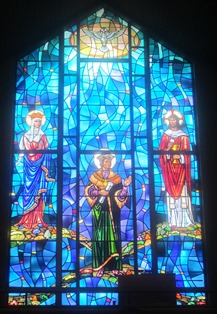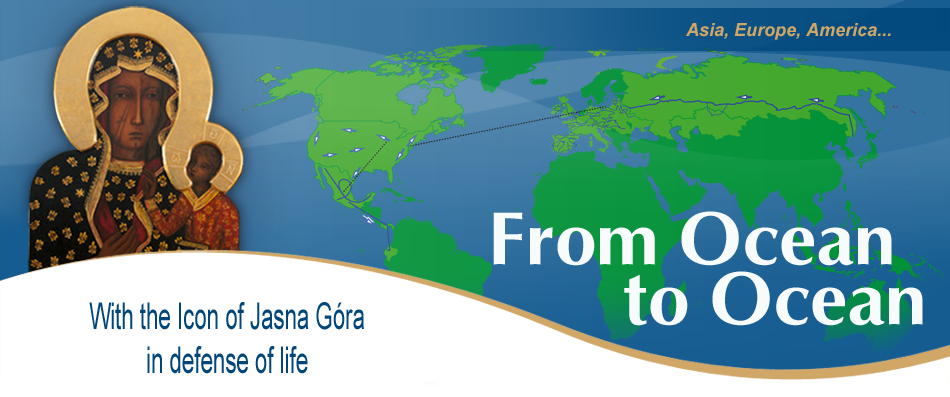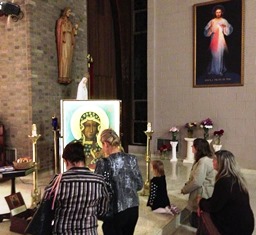On October 16, I brought the pilgrim icon of Our Lady of Czestochowa to my home parish of St. Thomas More in Fairfield, New Jersey. Fr. James Manos, the Pastor, was raised in the Greek Orthodox faith before entering the Catholic Church as an adult, so he has a great understanding and appreciation of icons. He also speaks out consistently in defense of life, and has been very supportive of me and the work of Human Life International.
St. Thomas More Parish has a largely Italian-American congregation, but on this night the Polish-Americans outnumbered them. That day was also my 54th birthday, and it was good to be with my Dad, and some old and new friends that I met through the peregrination.
The next day, I offered the Mass and preached on the Memorial of St. Ignatius of Antioch who was martyred by being fed to hungry lions in the Roman Colosseum around the year 117 A.D. because he refused to renounce his Christian faith.
Since my home parish is named after another martyr. I have often reflected on martyrdom and particularly the life of St. Thomas More, who like St. John the Baptist was a martyr for the truth about the nature of marriage. St. John the Baptist said to Herod, “It is not lawful for you to have your brother’s wife.” For this reason, Herodias had a grudge against him and sought an opportunity to kill him.

Ordinary Christians face persecution for standing for the truth. Bishop Thomas Paprocki of Springfield, Illinois recently revealed the story of another modern day martyr for marriage. His former secretary Mary Stachowicz was murdered by a co-worker after she gently tried to persuade him to abandon his gay lifestyle. Jack Phillips is a baker in Colorado who has been ordered by a judge to bake a wedding cake for a gay couple even though this violates his Christian beliefs. If he refuses, he could be sent to prison.
In Veritatis Splendor, Blessed Pope John Paul II reflected on the nature of martyrdom. He wrote:
Although martyrdom represents the high point of the witness to moral truth, and one to which relatively few people are called, there is nonetheless a consistent witness which all Christians must daily be ready to make, even at the cost of suffering and grave sacrifice. Indeed, faced with the many difficulties which fidelity to the moral order can demand, even in the most ordinary circumstances, the Christian is called, with the grace of God invoked in prayer, to a sometimes heroic commitment. In this he or she is sustained by the virtue of fortitude, whereby — as Gregory the Great teaches — one can actually "love the difficulties of this world for the sake of eternal rewards".
Greater fortitude may be necessary to witness to the true nature of marriage in the future as our society abandons Christian values. The family is the basic cell of society. The foundation of a healthy family is a natural marriage between one man and one woman who are united for life and open to the transmission of life.
In Russia, the Black Madonna is venerated as a patroness of those who want to restore family values. We should turn to her in this time of moral crisis in society. Let’s ask her to clear away the moral confusion so that people will see clearly that true marriage is a life-long relationship between a man and a woman, and that every human life is made in the image and likeness of God. Only God has the prerogative to take a life to Himself. Our duty is to respect and protect every human life.






